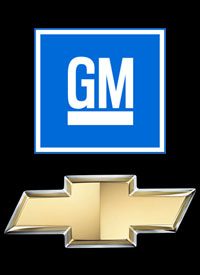
As Senator Jim DeMint, Republican from South Carolina put it prior to the lame-duck session, "This is what happens when you bail out one industry: five more get in line. Some auto manufacturers are struggling because of a bad business structure with high unionized labor costs and burdensome federal regulations. Taxpayers did not create these problems and they should not be forced to pay for them."
Precisely, but don’t expect that kind of logic to stop Congress from attempting to help the various special interests that donate huge sums of money to politicians’ election campaigns. One of those special interest groups is Big Labor, which is at the center of virtually every problem affecting the competitiveness of the U.S. auto industry, thanks to the lavish pensions, extravagant healthcare, and deadweight work rules that the United Auto Workers (UAW) have coerced out of the Big Three, in order to keep labor peace. As a result, wages and benefits for their workers cost the Big Three an average of more than $70 per hour, compared to less than $50 per hour for their non-union competitors.
Not surprisingly, supporters of an automaker bailout, such as UAW president Ron Gettelfinger, are painting apocalyptic scenarios of an auto industry bankruptcy, based on the argument that the domestic auto industry and its suppliers account for one out of every 10 jobs in the U.S. economy. But those who dispute that a cataclysmic series of events would occur argue that bankruptcy would not be nearly as traumatic as Gettelfinger claims. Under bankruptcy protection, an automaker could renegotiate labor contracts, trim the health and pension benefits costs that undermine its competitiveness against foreign automakers, and override state laws that make it difficult to close unprofitable dealerships.
Analysts claim that, just as the airlines have done, automakers could carry on with minimal disruption. Michael Levine, a former airline executive who has worked as a consultant for bankrupt airlines, says, "It is quite possible the auto industry is not thinking in truly contemporary terms. A couple of generations ago, the word bankruptcy meant liquidation. Now it very often means reorganization."
Supporters of a Motor City bailout point to the alleged success of the Chrysler rescue back during the Carter administration, because Chrysler ultimately repaid the loan and the federal government made money out of the deal. But all that the Chrysler bailout did was allow the company to ignore the problems within both itself and the auto industry, virtually guaranteeing another crisis down the road. History shows that bailouts merely serve to encourage the continuation of bad policies, which ultimately lead to even bigger problems in the future, as we are now witnessing yet again.
The situation in which the American auto industry presently finds itself is a disaster of its own making. The executives who have managed the Big Three have refused to accept the fact that their marketing and production strategies for long-term viability have been off the mark for decades. U.S. automakers laid claim to 90 percent of the domestic car market in 1960. Today their market share stands at less than 50 percent. And the UAW has refused to accept the fact that the market for its members has changed, as well. UAW membership peaked in 1979 at 1.5 million but has dropped to less than 500,000 today.
A taxpayer bailout of the auto industry would further expand the reach of the federal government into the private sector, following on the $700 billion rescue package intended for the stabilization of the U.S. banking system. This is not something that the taxpayers seem eager to swallow, judging from a recent USA Today/Gallup poll, which found that helping the car companies and other big corporations ranks low on the public’s list of economic priorities, with just 20 percent saying that such assistance is "critical" or "very important."
The free market has been telling the Big Three and the UAW that it is not willing to bear the extravagant pay, bonuses, and benefits packages that the American auto industry has been lavishing on itself, in return for products that do not give good value for the money that customers have to pay. If consumers are not willing to support such excesses, then neither should the taxpayers support such excesses by way of a federal government bailout. That would only serve to give official sanction to mediocrity by sending a message that the federal government is willing to step in and try to protect businesses and labor unions from their own stupid and stubborn decisions.
The long-term consequences of removing failure as an option in a free-market economy is that the federal government would also be undermining the conditions that create greater wealth and more jobs in our economy. Capital and labor should be allowed to flow to where it will be used most productively, because that will provide the most benefit to society. If that means letting capital and labor flow to nonunionized car factories in Tennessee, rather than unionized car factories in Michigan, then the federal government should not stand in the way.



